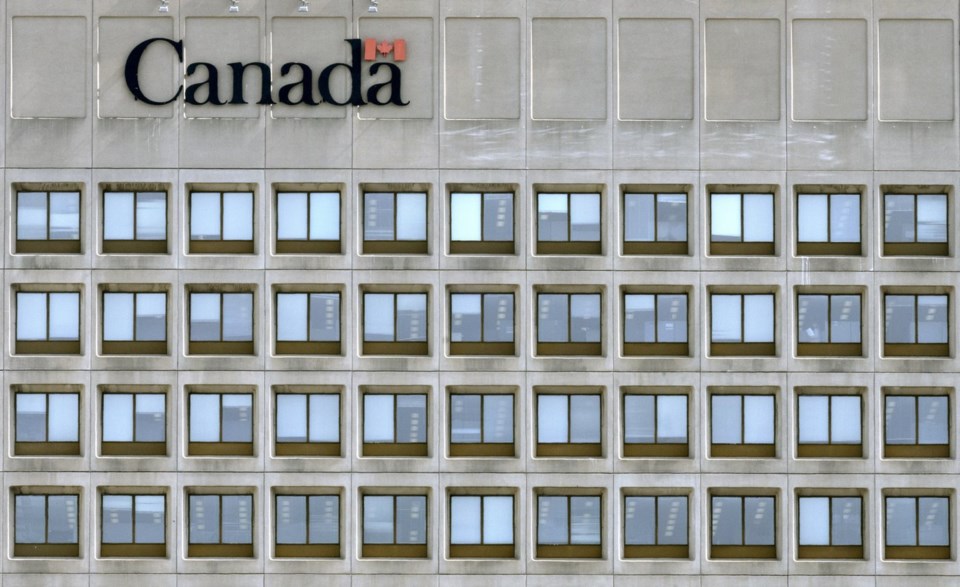OTTAWA — The military police watchdog says resistance to civilian oversight in the Canadian Forces Provost Marshal's office "worsened" last year.
The Military Police Complaints Commission released a report Tuesday accusing the provost marshal's office — which commands all military police in Canada — of "shutting down" complaints based on a "dubious" interpretation of the National Defence Act.
In its report, the watchdog said the provost marshal's office has been failing to advise complainants of their right to have their cases reviewed by the complaints commission as required by law, and is routinely refusing to respond to complaints made in interference cases.
Interference cases come up when a military police member files a complaint alleging that a member of the Canadian Armed Forces or a senior official in the Department of National Defence has attempted to influence an investigation.
“These issues not only persisted but have worsened. In 2024, the (Canadian Forces Provost Marshal) interpreted the National Defence Act in a way that avoids civilian independent oversight. The situation escalated from resistance to outright refusal to respect the oversight regime mandated by Parliament,” the watchdog's report said.
“This includes shutting down complaints without having the authority based on dubious interpretations of the National Defence Act as detailed in this report. These roadblocks are hindering the civilian oversight of the military police.”
Brig.-Gen. Vanessa Hanrahan, Canadian Forces Provost Marshal, said that she "acknowledge(s) the criticism" in the watchdog report and remains "fully committed" to the commission's mandate.
"The CFPM acknowledges that the interpretation of this legislative framework is at times different than that of the MPCC. Most notably, as it relates to the disclosure of information," Hanrahan said in an emailed response.
"All recommendations from the MPCC are considered carefully with a view to determining their merit, practicality, and effectiveness to bring positive changes to the (military police) program."
The report accuses the provost marshal's office of "terminating" complaints without an investigation when a criminal probe is launched.
The report said complaints are supposed to be paused pending the completion of a criminal investigation and any judicial proceedings. However, the report said that this year the provost marshal's office began to "simply terminate" some complaints without investigating them.
Hanrahan denied this claim.
"Regarding ongoing criminal proceedings, this is never used as a tool to avoid complaint investigations. In some instances, a criminal investigation may be a more appropriate manner to address a complaint received under the act," she said.
"Should this be the case, the military police require criminal proceedings to be concluded prior to proceeding with an (National Defence Act) part four investigation."
Tammy Tremblay, Military Police Complaints Commission chair, declined an interview request, but a spokeswoman for the commission later sent an email calling the CFPM’s explanation “inaccurate.”
Communications adviser Annie Boucher referenced a case that had recently become the subject of a public interest hearing, noting the CFPM closed down a complaint because they decided to launch a criminal investigation. In that case, they did not put the complaint on hold or choose to resume the complaint investigation after the criminal probe concluded, she said in the email.
The report calls for National Defence Act reform to ensure the commission has the ability to access "information necessary to investigate complaints."
"Without this legislative reform, there is a risk that the barriers the MPCC faces in exercising its mandate continue to dilute the will of Parliament in establishing an oversight system for the military police," the report said.
The report also says that individual members of the military police "respect and understand" the watchdog's mandate and the problem of "refusal of civilian oversight" stems from senior leadership.
Hanrahan said that the provost marshal's office remains committed to a "fair, transparent, and independent process" to address public complaints.
Hanrahan took over command of the Canadian Forces Provost Marshal's office in December, replacing Maj.-Gen. Simon Trudeau, who had held the position for the previous six and a half years.
This report by The Canadian Press was first published June 17, 2025.
David Baxter, The Canadian Press


